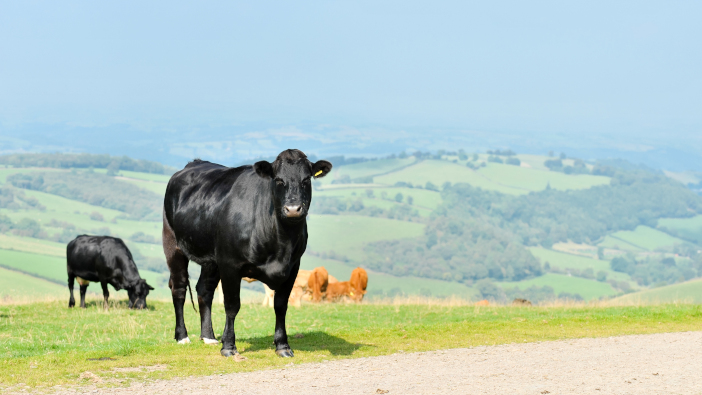New research from Rothamsted Research has concluded that a ‘meat tax’ would cost the UK economy £242 million each year, while the savings resulting from reduced climate change are calculated to be in the region of £100 million per annum.
The report, led by Dr Taro Takahashi, concluded that a tax on red meat to help curb climate change could do more harm than good. Dr Takahashi, an agricultural economist, said that the economic losses would not only be borne by livestock farmers but by everyone in society.
“Solely from the climate change perspective, our results unambiguously support everyone else’s finding: that a red meat tax can reduce GHG emissions.
“But unfortunately, this is only half the story, because the same tax could also force grazing livestock farms out of the industry – even when grassland is actually the most sensible land use at that particular location.
“As well as impacting consumers and farmers, the knock-on effects will be felt right along supply chains as well as rural communities that support and are supported by farmers.”
The National Food Strategy, published last week, called for a 30% reduction in meat consumption but called a meat tax ‘politically impossible’. This decision was met with strong criticism by advocates of a levy against ruminant farming because dairy, beef and lamb are known to cause greater greenhouse gas emissions than poultry, pork or plant-based products.

Conversely, while cattle and sheep are typically reared on grass, poultry and pigs are predominantly fed on cereals that could be eaten by humans, and with limited space available for agriculture, growing food for farm animals is often seen as inefficient use of land.
Other solutions
Dr Takahashi said that rather than a blanket tax, a better solution would be to look at which areas of the country are best kept as cattle and sheep farms, and which would be better turned to other uses such as crop production for human consumption, agroforestry and the provision of ecosystem services.
“This would involve a more nuanced approach of weighing up the carbon savings against the number of nutrients produced and the impacts on the economy, both locally and nationally,” he said.
The new study, published in Scientific Reports, modelled economy-wide impacts of a meat tax for the first time and estimated that, even under moderate tax rates previously proposed (19% for meat and 11% for dairy), the country’s economic losses would amount to £242 million per year.
These resulted from the transfer of land and labour forces from livestock farms to arable farms and non-agricultural industries.
The study found meat and milk production would decrease, with substantial greenhouse gas savings recorded both directly on farms and indirectly from connected industries, such as the production of agrochemicals. Such measures would reduce climate-changing emissions by 2.5 Mt CO2 equivalent per year, equating to a monetised social benefit of £101 million per year, using the same carbon price (£41 per tonne CO2 equivalent) used to derive the assumed tax rates.
Advocates of a meat tax argue that economic models predict a significant reduction in greenhouse gas emissions.
“However, many of these analyses do not consider wider effects of taxation beyond red meat and dairy markets, and as such, the macroeconomic impacts associated with a shrinkage in the livestock industry were mostly unknown before this study,” said Dr Takahashi.
Professor Michael Lee, deputy vice-chancellor of Harper Adams University, who co-authored the paper at Rothamsted added: “Our study also shows the vital role responsible consumption of ruminant livestock products can play within a sustainable food system under the UK’s grassland dominated landscape.

“Ruminant livestock are the most efficient provider of key nutrients for human health from land not suitable for growing crops. The study highlights that even with reduced protein consumption levels as advocated in the National Food Strategy, ruminants, given our landscape, should continue to supply high-quality protein from grasslands. This way, more fertile lands can be freed up for the provision of fibre and vitamins through vegetables and fruits.”
The next step for the research team is to identify when exactly grassland should remain grassland for sustainable food production, a task Dr Takahashi describes as critical for the future of UK agriculture.
“Given that we currently consume more livestock products than nutritionally recommended, it is perhaps socially suboptimal to maintain all of today’s grasslands for grazing purposes. The question, then, is under what soil, local climate and other geographical conditions are they desirable to society?
“We absolutely need to answer this question before telling a specific farmer to stop rearing livestock, because otherwise, some unintended consequences are very likely.”


